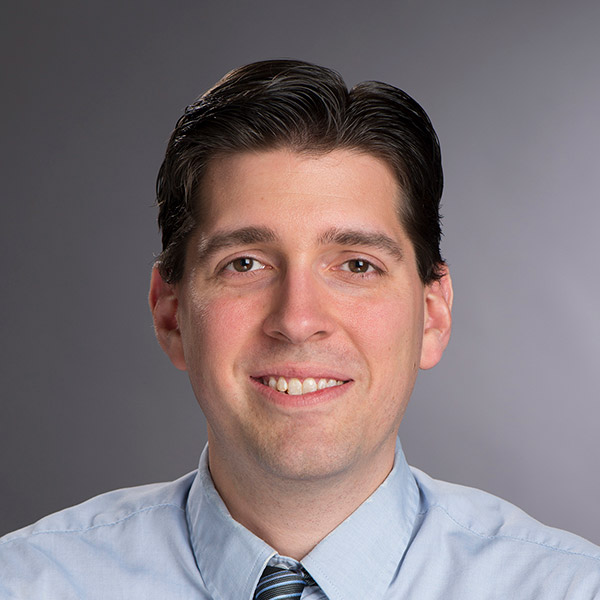Cory Crane

Dr. Crane has been with RIT since 2014 and is currently an associate professor in Biomedical Sciences within CHST. As a psychologist, his research and clinical focus is on substance use disorders and aggressive behavior. Read his perspective on a few critical thinking questions:
1. How do you teach or model applied critical thinking?
My current and past students will be familiar, and hopefully pleased, with the summary and critique model that we use to process and evaluate primary sources of data. Students are challenged to provide a one sentence summary and a single critique of each article that we review with the intention of developing this skill of critical evaluation along with one’s knowledge base. Students are also given the opportunity to become experts on one area of research (e.g., Cannabis use and interpersonal aggression) by conducting a thorough literature review. This exercise demonstrates not only the process involved in fully understanding the current state of knowledge regarding a controversial topic but also reconciling contradictory data provided by equally reputable and rigorously reviewed sources. My hope is that these experiences provide one of the many opportunities at RIT to practice critical thinking skills that will continue to be used regularly throughout the lives of our students.
2. Why do you think applied critical thinking is important in your domain or role?
Most tasks involved in clinical psychology require a suspension of preexisting assumptions and a strict focus upon original data collected for the purposes of unbiased clinical research, diagnosis, and treatment. The skills involved in critical thinking allow for confidence in the validity and reliability of data collected, the accuracy of analyses and interpretation, as well as the utility of recommendations for treatment or future research.
3. Can you share a story where quality applied critical thinking was key to your success?
I submitted a manuscript for publication in a peer reviewed journal several years back and, as part of the process, my team and I received feedback from several researchers who had read through our work. One reviewer requested that we rewrite sections of the introduction and discussion to alter the interpretation of our results to be consistent with an alternative theoretical orientation within the intimate partner violence literature. My team and I discussed the critique and agreed that the method and data did not support the requested interpretation so we opted to only identify briefly the theoretical orientation as an alternative perspective in the discussion while retaining our original interpretation. The same critique appeared in reviews of the revised manuscript. Again, my team and I revisited the literature, consulted additional colleagues, and ultimately decided that it would be misleading to the audience if we included the requested interpretation of our results. Instead of submitting a second revision, we opted to explore another journal. I consider this to be a successful failure in that we were unsuccessful in our initial publication attempt but that we were able to eventually communicate our results in an ethical and accurate manner consistent with established research through a continued process of consultation and reevaluation.
4. How do you use critical thinking in other areas of your life outside of RIT? And any last critical thoughts?
I’m sure that we could all generate countless examples in which we have had the opportunity to make good use of critical thinking skills on any given week. An admittedly mundane but recent instance comes to mind. An old friend recommended that I perform a few basic foot and leg stretches to avoid an exercise-related injury … yes, the things that we must consider as we age! Reconciling with the wisdom of amending my routine but still reluctant to sacrifice 15 minutes each week, I promptly committed several hours to pulling articles and evaluating his claim to conclude that I had essentially been given good advice. Due to his intervention and the process described, I have adapted my behavior, enjoy justifiable confidence my new regimen, and have likely reduced my health risk.
In an era when so much data are readily available, it can be tempting to trust in other sources to identify and interpret what we may find most interesting or helpful. This shortcut may help us feel more informed about a great many issues but the practice gives a great deal of power to charismatic or agenda-driven agents to shape our own beliefs into strong, ultimately unsupported opinions with real world consequences. Through critical thinking, we have a valuable set of tools to help organize the constant flow of data to which we are exposed on a daily basis into levels of reliability. We also have the capability to calibrate the strength of our opinions with an independent evaluation of sources and data.